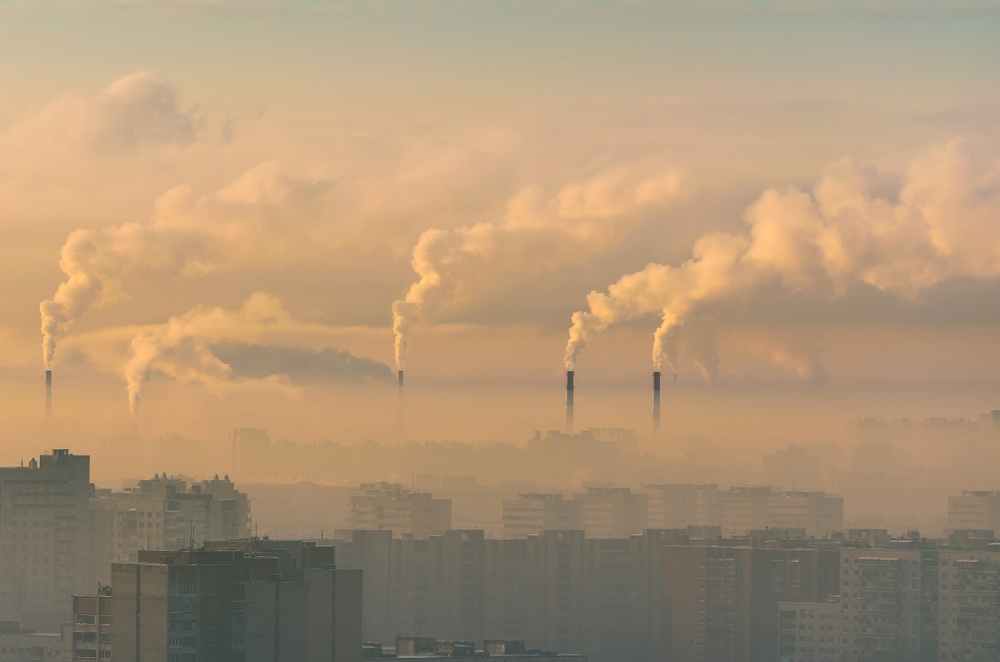Environment: Environmental Issues
Thailand is facing a number of environmental issues, including pollution, deforestation, and overfishing.
- Air pollution: Major cities in Thailand, such as Bangkok, have high levels of air pollution caused by traffic and industrial activity.
- Water pollution: Thailand's rivers and coastal waters are heavily polluted, largely due to agricultural runoff and untreated sewage.
- Deforestation: Thailand's forests have been rapidly depleted due to logging and land clearance for agriculture and development.
- Overfishing: Thailand's marine ecosystems are under threat from overfishing, which has led to the decline of fish populations and damage to coral reefs.
- Waste Management: Waste management is a significant problem in Thailand as a result of a lack of proper infrastructure, leading to overflowing landfills and plastic pollution in coastal areas.
- Climate Change: Thailand is experiencing severe weather conditions from the impacts of climate change, such as increased frequency of droughts and floods.
- Loss of biodiversity: Thailand's biodiversity is under threat from deforestation, urbanization, and pollution, which has led to the loss of many unique plant and animal species.
Thailand's government has implemented various measures to address these issues, but more needs to be done to effectively combat them.
Air Pollution 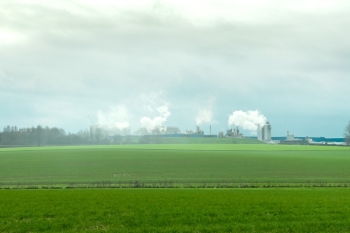
Air pollution in Thailand is a significant environmental issue, caused by a combination of factors including industrial activity, vehicle emissions, and agricultural burning. The effects of air pollution on the environment in Thailand can be far-reaching and detrimental to both human health and the natural world.
- Damage to human health: Air pollution can cause a range of health problems, including respiratory issues, heart disease, and cancer. For example, in Thailand, it is estimated that air pollution causes around 30,000 premature deaths each year. The World Health Organization (WHO) has ranked Bangkok as one of the most polluted cities in the world in terms of PM2.5 particles, which are particularly harmful to human health.
- Damage to crops and agriculture: Air pollution can damage crops and reduce agricultural yields, which can have a significant impact on the livelihoods of farmers. For example, in the north of Thailand, air pollution caused by agricultural burning has been linked to decreased yields of crops like rice and sugarcane. Also, the concentration of ozone in the air can damage plants and reduce crop yields
- Damage to ecosystems and biodiversity: Air pollution can damage ecosystems and lead to declines in biodiversity. For example, acid rain caused by air pollution can acidify bodies of water, harming fish and other aquatic animals, acid rain also can damage forests and kill trees. Air pollution also can cause damage to coral reefs by reducing their growth and reproduction rate.
Air pollution in Thailand is a serious issue that requires urgent action from the government and the public to mitigate its effects on human health, crops and agriculture and ecosystems and biodiversity. The government has implemented some measures to reduce air pollution, but more needs to be done to effectively combat the problem.
Water Pollution 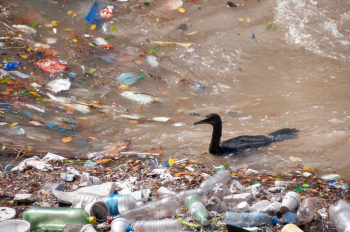
Water pollution in Thailand is a significant environmental issue, caused by a range of human activities including industrial waste, agricultural runoff, and untreated sewage. The effects of water pollution on the environment in Thailand can be far-reaching and detrimental to both human health and the natural world.
- Damage to human health: Water pollution can cause a range of health problems, including gastrointestinal illness, skin irritation, and other diseases. For example, in Thailand, water pollution caused by industrial waste and agricultural runoff has been linked to increased rates of cancer, particularly in areas near industrial zones and agricultural areas.
- Damage to aquatic ecosystems: Water pollution can damage aquatic ecosystems and lead to declines in biodiversity. For example, the pollution of rivers and coastal waters with chemicals, plastics and untreated sewage can harm fish and other aquatic animals, and damage coral reefs, leading to the loss of fish populations and other aquatic species.
- Impact on fishing and aquaculture: Water pollution can negatively impact on fishing and aquaculture industries by reducing fish populations and making it difficult for fisherman to find fish to catch. For example, the pollution of water sources can lead to the death of farmed fish and other aquatic animals, resulting in economic loss for fish farmers.
Water pollution in Thailand is a serious issue that requires urgent action from the government and the public to mitigate its effects on human health, aquatic ecosystems, and fishing and aquaculture industries. The government has implemented some measures to reduce water pollution, but more needs to be done to effectively combat the problem.
Deforestation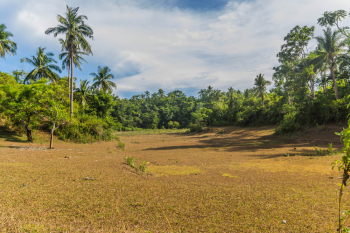
Deforestation in Thailand is a significant environmental issue, caused by a range of human activities including logging, agriculture expansion, and urbanization. The effects of deforestation on the environment in Thailand can be far-reaching and detrimental to both the natural world and human society.
- Loss of biodiversity: Deforestation can lead to the loss of biodiversity as it destroys habitats for many plant and animal species. For example, in Thailand, deforestation has been linked to declines in populations of endangered species such as tigers, elephants, and primates.
- Impact on climate: Deforestation can have a significant impact on the climate by removing trees that absorb carbon dioxide, leading to an increase in greenhouse gases in the atmosphere and contribute to global warming and climate change. For example, deforestation can lead to soil erosion and landslides and can cause flash floods and droughts.
- Impact on local communities: Deforestation can have a negative impact on local communities as it can lead to displacement of indigenous peoples and can limit their access to resources such as water and food. For example ,it can lead to economic loss for local communities that rely on the forest for their livelihoods, such as through hunting, gathering, and ecotourism.
Deforestation in Thailand is a serious issue that requires urgent action from the government and the public to mitigate its effects on biodiversity, climate, and local communities. The government has implemented some measures to reduce deforestation, but more needs to be done to effectively combat the problem.
Overfishing 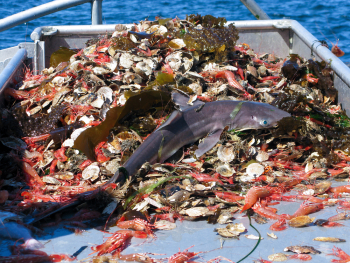
Overfishing in Thailand is a significant environmental issue, caused by a range of human activities including commercial fishing, illegal fishing and overuse of fishing gear. The effects of overfishing on the environment in Thailand can be far-reaching and detrimental to both the aquatic ecosystems and human society.
- Loss of fish populations: Overfishing can lead to the loss of fish populations and can collapse entire fish stocks. For example, in Thailand, overfishing has led to the decline of fish populations in the Gulf of Thailand and the Andaman Sea, which have been important sources of fish for local communities and the fishing industry.
- Impact on aquatic ecosystems: Overfishing can have a negative impact on aquatic ecosystems by removing keystone species, disrupting food webs, and altering the balance of marine ecosystems. For example, overfishing in Thailand has led to the decline of shark populations, which can have cascading effects on the ecosystem.
- Impact on local communities: Overfishing can have a negative impact on local communities as it can lead to reduced catches and economic loss for fishing communities. Also, it can lead to food insecurity for local communities that rely on fish as a primary source of protein.
Overfishing in Thailand is a serious issue that requires urgent action from the government and the public to mitigate its effects on fish populations, aquatic ecosystems, and local communities. The government has implemented some measures to reduce overfishing, such as fishing quotas, but more needs to be done to effectively combat the problem, including stricter enforcement of fishing regulations and promoting sustainable fishing practices.
Waste Management 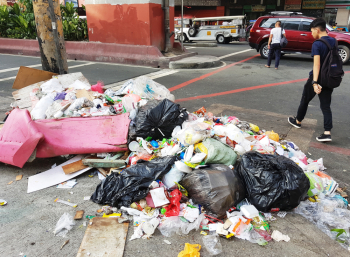
Waste management in Thailand is a significant environmental issue, caused by a range of factors including population growth, urbanization, and a lack of infrastructure for waste management. The effects of poor waste management on the environment in Thailand can be far-reaching and detrimental to both the natural world and human society.
- Contamination of soil and water: Poor waste management can lead to the contamination of soil and water with pollutants from waste. For example, in Thailand, illegal dumping of waste has led to contamination of rivers and coastal areas, which can have negative effects on aquatic life and human health.
- Air pollution: Poor waste management can also lead to air pollution due to the release of methane and other pollutants from landfills.
- Loss of biodiversity: Poor waste management can also lead to the loss of biodiversity as it can destroy habitats for many plant and animal species. For example, in Thailand, illegal dumping of waste has led to the destruction of forests and other natural habitats.
- Health problems: Poor waste management can also lead to health problems for people living near waste sites, particularly due to exposure to pollutants and disease-carrying pests.
Waste management in Thailand is a serious issue that requires urgent action from the government and the public to mitigate its effects on the environment, health and local communities. The government has implemented some measures to improve waste management, such as increasing recycling and composting, but more needs to be done to effectively combat the problem, including stricter enforcement of waste management regulations and promoting sustainable waste management practices.
Climate Change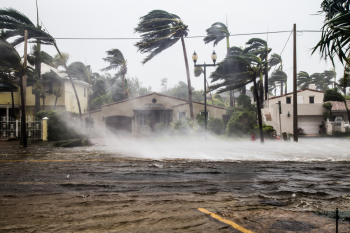
Climate change is a significant environmental issue that is affecting the environment globally and Thailand is no exception. Climate change is caused by the release of greenhouse gases from human activities such as burning fossil fuels, deforestation, and agriculture. The effects of climate change on the environment in Thailand can be far-reaching and detrimental to both the natural world and human society.
- Rising sea levels: Climate change is causing sea levels to rise, which can lead to coastal flooding and erosion. This can have negative effects on coastal communities and infrastructure, as well as on coastal ecosystems. For example, in Thailand, rising sea levels are expected to increase the frequency and severity of coastal flooding, which can damage homes and businesses, and threaten the livelihoods of people living in coastal communities.
- Increased frequency and intensity of extreme weather events: Climate change is expected to increase the frequency and intensity of extreme weather events For example, heat waves, droughts, and heavy rainfall. These events can have negative effects on agriculture, infrastructure and human health.
- Loss of biodiversity: Climate change can lead to the loss of biodiversity as it can affect the distribution and abundance of plant and animal species. For example, In Thailand, climate change is expected to lead to the loss of coral reefs due to ocean acidification and warming waters.
- Impact on agriculture: Climate change is expected to have a significant impact on agriculture in Thailand. For example, rising temperatures and changes in precipitation patterns can affect crop yields and the distribution of pests and diseases.
Climate change is a serious issue that requires urgent action from the government and the public to mitigate its effects on the environment, human society, and economy. The government has implemented some measures to reduce greenhouse gas emissions and to adapt to the impacts of climate change, such as increasing use of renewable energy and promoting sustainable land use. However, more needs to be done to effectively combat the problem, including stricter regulations to reduce emissions, and promoting sustainable development.
Loss of Biodiversity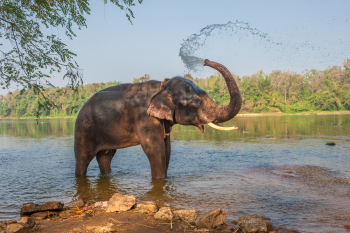
Loss of biodiversity, or the decline in the variety of plant and animal species, is a significant environmental issue facing Thailand. Biodiversity is important for maintaining the balance of ecosystems, providing valuable resources, and supporting the livelihoods of local communities. However, human activities such as deforestation, urbanization, pollution, and over-exploitation of natural resources are causing a decline in biodiversity in Thailand.
- Loss of ecosystem services: Biodiversity is essential for maintaining the balance of ecosystems and providing valuable ecosystem services such as pollination, pest control, and water purification. The loss of biodiversity can disrupt these services, leading to a decline in ecosystem health and resilience. For example, loss of biodiversity in Thailand's mangrove forests can result in loss of coastal protection, and loss of valuable fish and shrimp habitat.
- Decrease in medicinal and useful plant species: Many plant species have medicinal properties that are valuable for human health, and others have economic value as food, fibers, or other products. The loss of biodiversity can reduce the availability of these resources and limit the options for sustainable development. For example, in Thailand, loss of biodiversity in the forest can lead to a decline in the availability of non-timber forest products such as wild fruits, nuts, and medicinal plants.
- Impact on tourism: Biodiversity is an important draw for tourism, and the loss of biodiversity can have negative effects on the tourism industry. For example, loss of biodiversity in Thailand's coral reefs can lead to a decline in the number of tourists visiting these areas to snorkel or dive.
To mitigate the effects of loss of biodiversity in Thailand, it is essential to implement policies and practices that promote conservation and sustainable use of natural resources. This includes measures such as protected areas, sustainable land use, and regulations to reduce pollution and over-exploitation of natural resources. There are also many conservation organizations and programs working to protect biodiversity in Thailand and support sustainable development.
Copyright © 1993—2024 World Trade Press. All rights reserved.

 Thailand
Thailand 